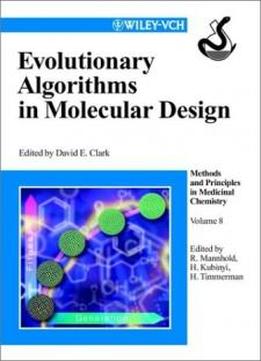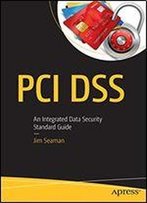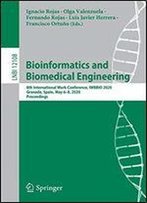
Evolutionary Algorithms In Molecular Design (methods And Principles In Medicinal Chemistry)
by Raimund Mannhold /
2000 / English / PDF
19 MB Download
When trying to find new methods and problem-solving strategies for their research, scientists often turn to nature for inspiration. An excellent example of this is the application of Darwin's Theory of Evolution, particularly the notion of the 'survival of the fittest', in computer programs designed to search for optimal solutions to many kinds of problems. These 'evolutionary algorithms' start from a population of possible solutions to a given problem and, by applying evolutionary principles, evolve successive generations with improved characteristics until an optimal, or near-optimal, solution is obtained.
When trying to find new methods and problem-solving strategies for their research, scientists often turn to nature for inspiration. An excellent example of this is the application of Darwin's Theory of Evolution, particularly the notion of the 'survival of the fittest', in computer programs designed to search for optimal solutions to many kinds of problems. These 'evolutionary algorithms' start from a population of possible solutions to a given problem and, by applying evolutionary principles, evolve successive generations with improved characteristics until an optimal, or near-optimal, solution is obtained. This book highlights the versatility of evolutionary algorithms in areas of relevance to molecular design with a particular focus on drug design. The authors, all of whom are experts in their field, discuss the application of these computational methods to a wide range of research problems including conformational analysis, chemometrics and quantitative structure-activity relationships, de novo molecular design, chemical structure handling, combinatorial library design, and the study of protein folding. In addition, the use of evolutionary algorithms in the determination of structures by X-ray crystallography and NMR spectroscopy is also covered.
This book highlights the versatility of evolutionary algorithms in areas of relevance to molecular design with a particular focus on drug design. The authors, all of whom are experts in their field, discuss the application of these computational methods to a wide range of research problems including conformational analysis, chemometrics and quantitative structure-activity relationships, de novo molecular design, chemical structure handling, combinatorial library design, and the study of protein folding. In addition, the use of evolutionary algorithms in the determination of structures by X-ray crystallography and NMR spectroscopy is also covered. These state-of-the-art reviews, together with a discussion of new techniques and future developments in the field, make this book a truly valuable and highly up-to-date resource for anyone engaged in the application or development of computer-assisted methods in scientific research.
These state-of-the-art reviews, together with a discussion of new techniques and future developments in the field, make this book a truly valuable and highly up-to-date resource for anyone engaged in the application or development of computer-assisted methods in scientific research.











